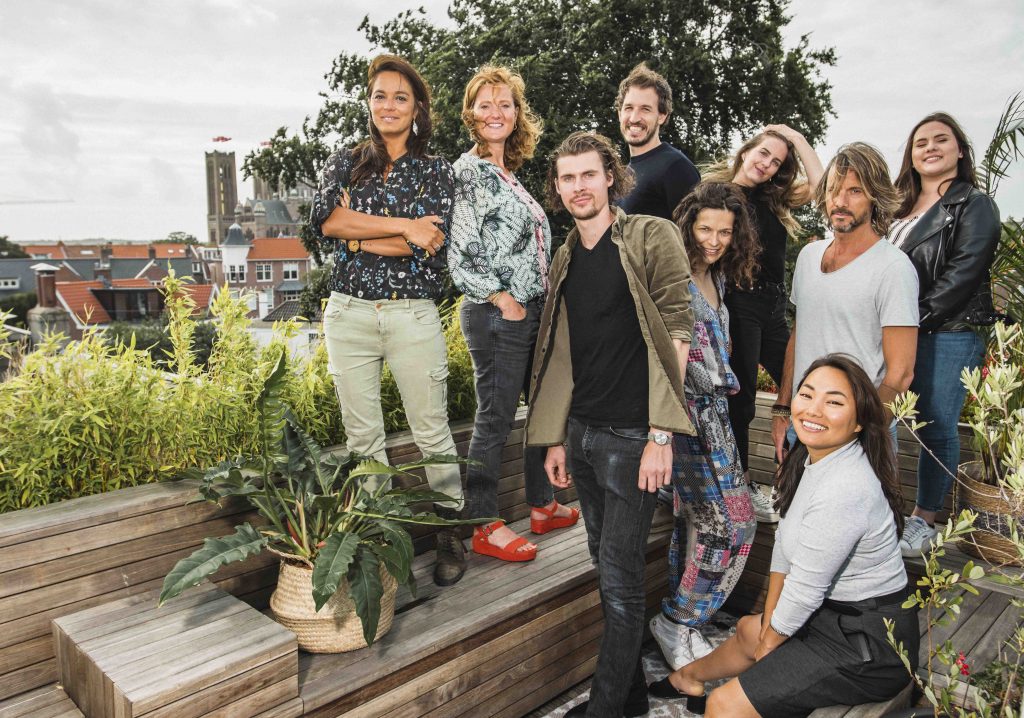Steve Molino is a Principal at Clear Current Capital, a venture-capital firm that invests in early-stage alt-protein startups. The company focuses on innovation in the categories of plant-based food, cultured meat, and biomass and precision fermentation, and has extensive experience with leading mission-driven venture-capital firms.
We all know how essential investment is for any startup – at any stage. However, what can be tricky, is knowing how and when to seek investment, and who to approach. Getting the insights of someone like Steve, who works in startup investment, is gold. More than just sharing his opinion on the alt-protein scene, Steve also clarified some typical sticking points around investment for first-time entrepreneurs.
Steve, tell us about your background and how you came to work at Clear Current Capital.
Steve: My professional background prior to joining Clear Current Capital was mainly in the alternative-investments and strategy consulting spaces. On the personal side, I began transitioning to a plant-based diet some years ago. This was after learning more about the negative externalities caused by the basis of our food systems: industrialised animal farming.
This personal passion led me down a path to try if there were investors focused on sustainable food and alt-proteins. I spoke with anyone and everyone I could in the space. Then I found myself working alongside some of the best investors in the industry, at both Stray Dog Capital and New Crop Capital (now Unovis Partners). Through these experiences, it became clear to me that I wanted to focus on generating impact in the alt-protein space. How? By continuing to support early-stage entrepreneurs looking to disrupt industrial animal agriculture.
Fortunately, I built a good relationship with Curt Albright, the Managing Member and Founder of Clear Current Capital. I was able to join the firm. I want to push forward our mission of reinventing the food system through sustainable and humane alt-protein investments.
What are the key points you look at when investing in a startup?
Steve: First and foremost, we look for companies that are offering alternatives to animal-based products, as our mission is to eliminate industrial animal agriculture. This mission is at the center of everything we do. We aim to identify products that can ultimately appeal to flexitarians, not just vegans and vegetarians. Our impact in this space will come from helping companies scale.
Beyond that, our major focuses are around the team and the solutions that the startups are bringing to the market. Since we focus exclusively on early-stage companies, we are really backing the team more than anything. A company or product can pivot or adapt over time as the business and opportunities change. So it’s vital to find aligned entrepreneurs who are best-suited to push the business forward. As for the product, we look to focus on offerings that are filling white spaces in the market.

If you were to found a food startup today, which category would you focus on and why?
Steve: We see major opportunities across the alternative-protein sector, as the space is still incipient and there’s major room for innovation. Some areas we see as potential white spaces are eggs alternative, seafood, and whole-cuts (for example steaks or fillets). Solutions to these areas may come from plant-based, cultivated, and/or fermentation approaches.
What are the top three things entrepreneurs should consider when looking for investment?
Steve: First, entrepreneurs should determine if taking on investors by selling equity is a requirement or if there are other sources of money that can be obtained. Sometimes, VC dollars make the most sense, but it’s also the most “expensive” capital that founders will take on. Therefore, the first step should be to exhaust all other capital options that may be non-dilutive or less expensive (e.g. grants).
Second, entrepreneurs should have a full comprehension of the amount of money they need to raise in order to be able to meet the next major milestones they’re looking to achieve. Raise too little, and they may find themselves in a serious cash crunch without having achieved milestones that are important to later stage investors. Raise too much, and they just sold more equity than necessary at a lower valuation to later stage rounds (the earlier the dollars, the more “expensive” the funding).
Third, entrepreneurs should look to bring on investors that are aligned with the long-term mission of the company and that fully believe in the founding team. Investors should act as a source of support to the startup, beyond just providing capital. Whether it’s through support in areas where the startup is lacking resources, or via strategic support and guidance on major decisions. It is important to ensure that your investors are there to help you achieve your vision, more than just investment. There’s no need to let anyone invest if they are going to potentially hinder the long-term success of the business.
In your opinion, what is a food startup’s biggest asset?
Steve: The team is undeniably the biggest asset of a food startup – or of any startup for that matter. A company can have great ideas and be working in a white space in the market with an unmet need. However, all that will be worthless if the right team is not leading things forward. At the early stage, the team is everything.

What is your favourite thing about working in the alt-protein space?
Steve: Everyday, I get to meet and support visionary entrepreneurs and industry stakeholders who have decided to devote their time, resources, and skill-sets to positively influence our food system and our planet. It is inspiring and exciting to meet these game-changing individuals. I feel lucky to be working alongside them to push the food system in a more sustainable and humane direction.
How do you see the food industry changing in the next five years?
Steve: I fully expect current white spaces in the alt-protein industry to start being filled, particularly in alternative-seafood products and in whole-cuts. Seafood, is a dietary staple throughout much of the world. It’s only a matter of time before alt-seafood products gain mainstream traction in a similar manner to what we’ve seen with other meat alternatives like beef or chicken. Additionally, we know that the majority of meat eaten is in the whole cut form. So I expect to see (and I am already seen it) a larger focus on addressing this need.
I also think it will be interesting to see how the food industry changes from a pricing standpoint. As we’ve seen over the past few years, especially with the pandemic, disruption to the food supply chain can cause immediate repercussions for the price of animal-based products that are long-lasting. Such pricing pressure, alongside the ever-falling prices of plant-based products, could result in price parity soon being reached. Thus furthering consumer adoption of alt-proteins.
Finally, what would be your main piece of advice for an entrepreneur or founder in the alt-protein space?
Steve: There are so many areas within alt-proteins that are ripe for innovation. So, if you’re going to start a company in this space, avoid going after a saturated market, such as milk, with a slightly differentiated value proposition. Instead, push to disrupt an area with truly untapped potential and pave the way for innovation in that space.

